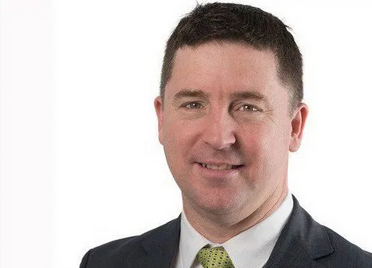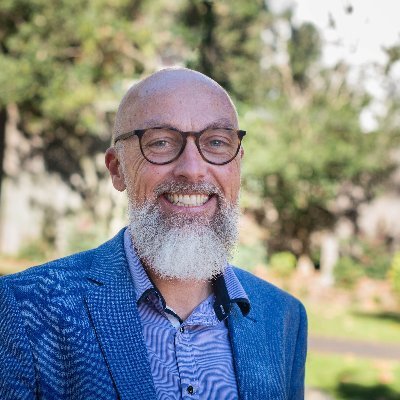NSW “Conversion Practices”
In March 2024, the NSW Parliament passed the Conversion Practices Ban Act, a week after revealing the legislation. It came into effect in April 2025.
During and after the 2023 NSW Election, the incoming Premier and Government made firm commitments to faith communities to protect prayer, preaching and consensual requests for support.
The final legislation was the result of confidential consultation with a small group of faith leaders. However, due to last minute changes and parliamentary speeches from the Attorney General and others, there are significant problems and ambiguity in the final law.
Most concerningly, Anti-Discrimination NSW, who will be policing the new Act, are interpreting it in a way that would break Labor’s promises to faith communities.
Labor’s Promises
Leading up to the 2023 NSW election, the Labor party and Chris Minns made clear commitments to protect faith communities in any “LGBTIQ conversion practices” legislation. At a faith leaders forum in Paramatta, Chris Minns said:
Taking offense at the teachings of a religious leader will not be banned. Expressing a religious belief through sermon will not be banned. And an individual, of their own consent, seeking guidance through prayer will not be banned either.
At forums across the State, ALP MPs and candidates delivered a scripted commitment, which included:
Neither the Greenwich Bill nor the Victorian model will be the starting point for our legislation.
Any legislation to ban conversion therapy or suppression practises must not outlaw individuals voluntarily seeking out medical health, allied health or other advice and assistance regarding their personal circumstances.
One candidate, who went on to win a very marginal seat, added:
If someone comes voluntarily to seek advice, to seek help, to seek guidance, it is imperative that their right to do that is not outlawed. So I will commit to protecting a pastoral care or prayer situation where the person has come voluntarily and asked for that.
These promises (along with similar commitments from the Coalition) were communicated widely through faith communities, and enabled many people of faith to feel comfortable to vote for a NSW Labor Government, believing that they would protect fundamental religious freedoms such as prayer and teaching.
Problems with the Act
The final legislation was the result of confidential consultation with a small group of faith leaders and other stake holders. However, after those consultations, the Government made last minute changes to the wording that introduced significant ambiguities and problems. In the parliamentary debate, the Second Reading Speeches from both the Attorney General and the Leader of the Government in the Legislative Council also “interpreted” a number of the sections of the bill in ways that were contradictory to the commitments from the Government.
As a result, there are significant ambiguities and problems in the Act.
Read more about the problems in the Act
Read more about how the Act was developed
ADNSW breaks Labor’s promises
Anti-Discrimination NSW (ADNSW) is the independent statutory body that is responsible for accepting complaints about “conversion practices” In April, ADNSW released their advice on how to comply with the Act.
This advice is demonstrably inaccurate and does not match with the wording of the Act. It is also vague and ambiguous, and provides no clarity on the law. Read a full analysis of the errors in the ADNSW guidance here.
Most significantly, the ADNSW advice breaks the promises made by the Premier and Labor Government.
Celibacy
ADNSW provides a lengthy discussion on celibacy. The section concludes:
This means telling a person who is same-sex attracted they must be celibate or never marry, in circumstances where a heterosexual person would not be given the same guidance, could be regarded as suppressing a person’s sexuality and may be unlawful, depending on the circumstances.
Many major faiths teach that that marriage is only between a man and a woman, and that sex is reserved for such marriage.
A person who is same sex attracted and also a member of such a faith will be thinking through what aspects of their beliefs they want to commit to. If they consensually meet with a faith leader to discuss what their faith teaches about sexuality, they will be advised what their faith teaches. They will also be advised that followers of the faith should live according to those teachings.
The ADNSW advice says that this exploration and advice may be a conversion practice, giving no clarity to faith leaders as to how they can discuss these issues with members of their own faith.
This breaks the promises made by multiple Labor candidates and MPs that laws “must not outlaw individuals voluntarily seeking out… advice and assistance regarding their personal circumstances”.
Prayer
On prayer, the ADNSW guidance says:
However, praying with or over a particular person in an attempt to try to change or suppress that person’s sexuality or gender is unlawful. It is not unlawful for a person to seek counsel or guidance from within their faith. Counsel and guidance, including prayer, can still be given as long as it is not an attempt to change or suppress the person’s sexuality or gender identity.
According to this advice, if a person chooses to live celibately outside of heterosexual marriage, and asks for prayers supporting that voluntary decision, then ADNSW would consider that a “suppression” of their sexuality, and the prayer would be an unlawful activity.
This breaks the Premier’s promise that “an individual, of their own consent, seeking guidance through prayer will not be banned”.
Along with directly breaking the promises from the Premier and Labor, the advice from ADNSW shows a concerning disregard for the details of the Act, and a tendency to directly target faith communities.
Directly targeting faith communities
The ADNSW website contains only two “case studies” of conversion therapy. One desceribes a young man growing up in a Muslim family, the other a young woman in a Christian family. In these examples, the only positive reference to a person of faith is to a gay Christian.
The website also links to a comic titled “Conversion Practices in Australia” that displays practices exclusively in a Christian context, with imagry of a cross, church and pews.
These examples suggest a significant bias in ADNSW against traditional faiths, and an intentional targetting of those communities.
It is difficult to see how faith communities can expect fair and balanced treatment from ADNSW.
Expanding the definition of “conversion practice”
In the section titled “What are examples of conversion practices?“, ADNSW provides examples that are extremely broad and ambiguous.
The section also also links to a comic titled “Conversion Practices in Australia“. This comic includes a Christian minister in a pulpit and an individual overhearing a conversation. It is clear that neither of these examples are conversion practices under the law, since neither of them were directed towards the individual. Preaching is to a larger audience, and an overheard conversation about a third party is not directed to the individual.
ADNSW demonstrates with these examples that they are intending to interpret the law in as expansive a way as possible, with disregard to the actual wording of the Act.
The website goes on to say:
Often, LGBTQA conversion practices are difficult to recognise because the forms they take might at first appear to be non-threatening, such as group study, mentoring and counselling, or camps and courses.
This is setting up ADNSW to target a broad range of basic faith-based practices which the Government promised to protect.
Ignoring protections in the Act
Of particular concern is the approach that ADNSW has taken to the exceptions in the Act.
The Act contains three categories of action which are NOT a conversion practice. The ADNSW guidance discusses the first (medical practitioners) and the third (religious teaching and prayer) but completely fails to reference the second.
Clause 3(3)(b) states:
- A conversion practice does not include…
- genuinely facilitating an individual’s coping skills, development or identity exploration to meet the individual’s needs, including by providing acceptance, support or understanding to the individual
This is a very important clause and is one of the primary reasons the legislation received support from faith communities.
By ignoring this critical protection, ADNSW is postitioning itself to target genuine support.
What happens next?
Freedom for Faith is supporting faith leaders as they engage with both the Government and ADNSW. Conversations with the ADNSW have resulted in minor improvements to their advice and website, but the major problems remain.
Faith leaders have chosen to give the Government time to find and implement a solution to the problem.
If a solution is not forthcoming in the coming weeks, we will be launching a comprehensive public campaign, with an eye to the 2027 NSW Election.



